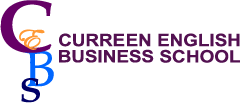
Es un curso práctico donde los profesores aprenderán no sólo metodología sino también herramientas de Coaching Escolar, que les ayudarán a ser mejores profesores y a establecer una comunicación y entendimiento más fluido con el alumno, trabajando la empatía, entre otras habilidades.
MODULO I – COACHING ESCOLAR
- Responsabilidad (El papel del profesor en el aula)
- El poder de la observación
- La introspección (El desarrollo personal, conocernos a nosotros mismos)
- Que áreas de nosotros mismos no conocemos(Ventana de Johari)
- Que creencias nos bloquean a la hora de enfrentarnos a nuestros alumnos.
- Concienciación de nuestro role (Nuestros alumnos espejan en nosotros)
- La importancia de la escucha activa.
- El poder de la empatía.
- Reconocer a nuestros alumnos. Si son visuales, auditivos, kinéstesicos. (Como ayuda a abordar el sistema de aprendizaje).
- El lenguaje (Cuidar el lenguaje porque no es inocente)
- La importancia de los objetivos. Modelo GROW de John Witmore
- La importancia del feedback, tanto con los propios alumnos como con los padres.
- La importancia del enfoque sistémico en las clases. (El niño se siente integrado, forma parte de un sistema)
- La importancia de la Motivación.
MODULO II – DIDACTICA Y METODOLOGÍA
- Preparación exhaustiva de la clase
- La importancia del “Warm-up”
- Como dar Instrucciones
- Gestión del tiempo
- Rapport con los alumnos
- Lay-out de la clase
- La importancia del role-playing.
- Participación activa, (como obtener la atención del alumno)
- Juegos y dinámicas dependiendo de la “4 skills” a desarrollar.
- Lectura
- Escritura
- Escucha
- Actividades orales
- Como gestionar los exámenes
- Deberes y tareas extras.
- La importancia de la dinámica comunicativa en la clase.
- Mantener una atmósfera adecuada y controlada para que fluya el aprendizaje.
This intensive course Didactics, Methodology and Educational Coaching is open to all teachers of English who want to improve their teaching skills and acquire new educational skills.
It is a workshop where teachers not only learn methodology but also Educational Coaching tools that will help them become better teachers and establish a more fluid communication and understanding with the student, working empathy, among other skills.
MODULE I – EDUCATIONAL
- Responsability (The role of the teacher in the classroom)
- The power of observation
- Introspection (Personal development, know ourselves)
- What areas do not know ourselves (Johari Window)
- What beliefs block us when facing our students.
- Awareness of our role (Our students mirrored in us)
- The importance of active listening.
- The power of empathy.
- Recognize our students. If you are a visual, auditory or kinestheticperson. (how it helps to cope with the learning process)
- Language (Watch your language because it is not innocent).
- The importance of the objectives. GROW model John Witmore.
- The importance of feedback both with students and with parents.The importance of the systems approach in the classroom.
- (The child is.an integrated part of the system).
- The importance of Motivation.
- Comprehensive Prep Class
- The importance of «Warm-up»
- How to Give Instructions
- Time management
- Rapport with students
- Lay-out of the class
- The importance of role-playing.
- Active participation, (such as getting the attention of the student)
- Games and activities depending on the «4 skills» to develop.
- Reading
- Writing
- Listening
- Oral activities
- How to manage exams
- Homework and extra task.
- The importance of the dynamics of communication in the classroom.
- Maintain an adequate and controlled atmosphere to flow learning.
- Courses are taught in English
- Practices from day one.


